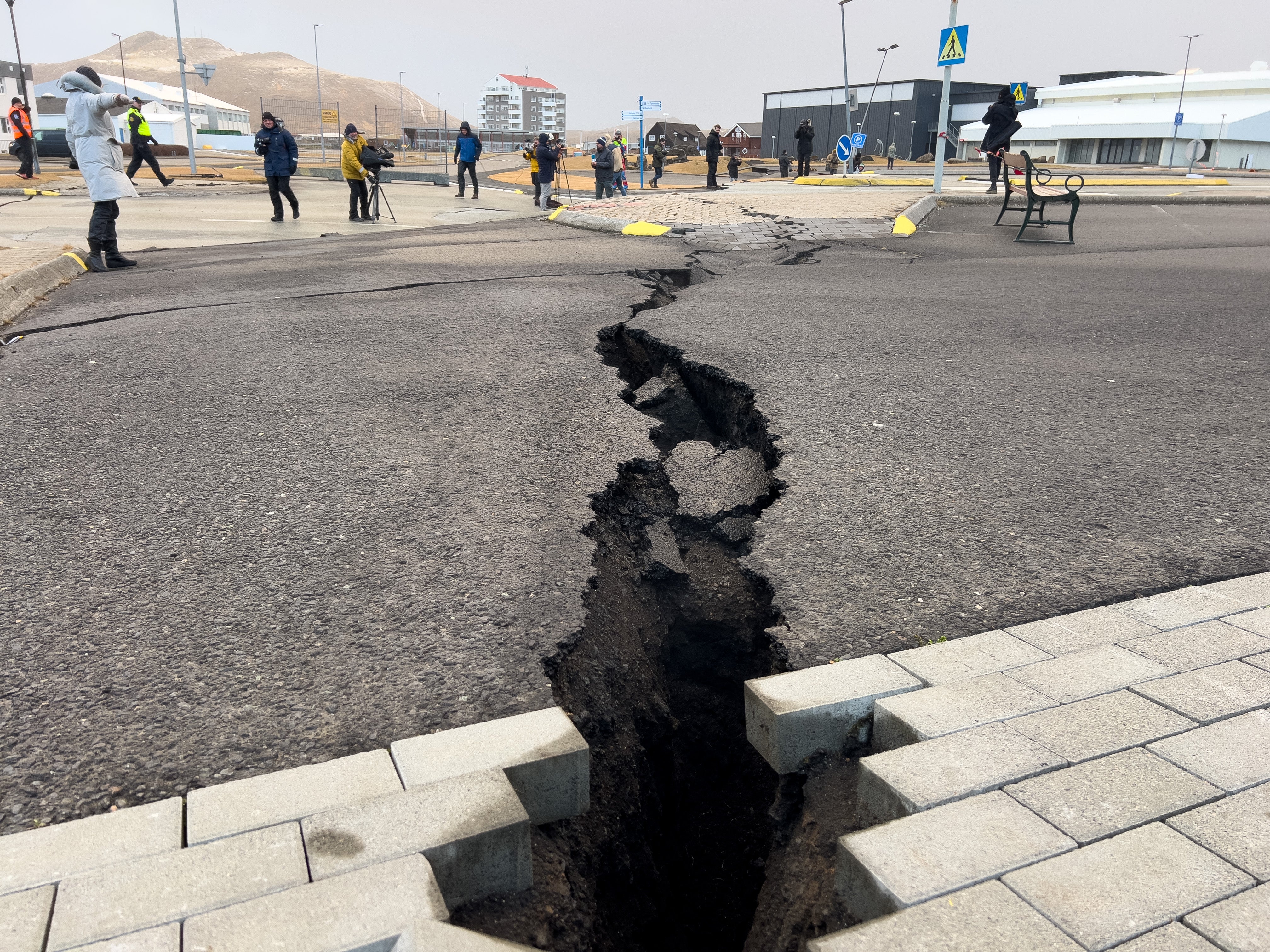Mea Culpa: warning of a volcanic eruption of amiditis
Crimes against syntax and style in last week’s Independent reported to the court of pedantry, presided over by judge John Rentoul


A bad case of “amiditis” has been reported to the authorities by Linda Beeley. The first sentence of an article last weekend read: “A sense of trepidation builds on the coach as we are waved through the roadblock that has held back people from returning to the Icelandic town of Grindavik amid an ‘imminent’ volcanic eruption warning.” As Linda said, it is hard to be “amid” a warning, or indeed “amid” something that is imminent. We could have used “during” instead, but really it needed to be rewritten, to say something like “... Grindavik, whose inhabitants have been warned of an ‘imminent’ volcanic eruption”.
When the court of pedantry assembles, I would ask it to take several other offences into consideration. Starting with a report of the “key absences” at the climate conference in Dubai, in which we said: “US president Joe Biden, Chinese president Xi Jinping and Russian president Vladimir Putin, leaders of the world’s biggest carbon-polluting nations, are all giving the summit a miss amid ongoing geopolitical tensions.” Not just an “amid” but an “ongoing”! “Amid” can usually be replaced with a normal word; “ongoing” can usually be deleted without any loss of meaning. But in this case, the whole clause after the word “summit” can go in the bin. Unspecified “geopolitical tensions” adds nothing.
Bridge too far: As the Elgin marbles/Parthenon sculptures row rumbled on, we got our word order in a twist, saying: “In cancelling his meeting with Mitsotakis, Sunak undermined one of his genuine achievements – rebuilding bridges with EU leaders blown up by Boris Johnson.” It was obvious that we did not mean that the former prime minister had planted bombs under EU leaders, if the reader stopped to think about it, but we should not be making the reader stop to parse sentences. We changed it to “rebuilding bridges with EU leaders after those relationships were blown up by Boris Johnson”.
Firesparker: In an article about Beth Mead, the footballer, we said that she had been left out of the 2020 Olympics Team GB squad, “famously sparking the form that led into the Euros the following summer, is as motivated as anyone to get the job done”. Mick O’Hare thought I should know about that “famously sparking”. My view is that there is nothing wrong with “sparking” in this context, the analogy being with Mead’s fiery motivation, but there is no need for the “famously”. Either we know about it, in which case there is no need to be told that other people do too, or we don’t, in which case there is no need to be told that we are ignorant.
Euphemism watch: We used the phrase “mental health issues” twice last week. I think we should either say “problems” or be more specific. “Issues” sounds as if we are too embarrassed to face up to the reality of mental illness.
Oh no she wasn’t: Tuesday’s On this Day feature claimed that Viscountess Astor became Britain’s first woman MP on that day in 1919. As Nigel Fox wrote to remind us, every parliamentary pedant knows that the first female MP was Constance Markievicz, in the general election of 1918. As a member of Sinn Fein, she did not take her seat.
Subscribe to Independent Premium to bookmark this article
Want to bookmark your favourite articles and stories to read or reference later? Start your Independent Premium subscription today.



Join our commenting forum
Join thought-provoking conversations, follow other Independent readers and see their replies
Comments